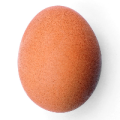The Sonnets
Sonnet II.
When forty winters shall besiege thy brow,
And dig deep trenches in thy beauty’s field,
Thy youth’s proud livery, so gaz’d on now,
Will be a tatter’d weed, of small worth held.
Then being ask’d where all thy beauty lies,
Where all the treasure of thy lusty days,
To say, within thine own deep-sunken eyes,
Were an all-eating shame, and thriftless praise.
How much more praise deserv’d thy beauty’s use,
If thou couldst answer “This fair child of mine
Shall sum my count, and make my old excuse”,
Proving his beauty by succession thine!
This were to be new made when thou are old,
And see thy blood warm when thou feel’st it cold.
Sonetos
Soneto II
Cuando el cuarenta invierno haya sitiado
El castillo de tu hermosa frente,
Cavado en ella trincheras cruelmente,
Pétalo marchito, ay! pisoteado,
Será tu rostro, hoy tan admirado
Y en tus hundidos ojos, tristemente,
Pasada gloria ha de buscar la gente,
En vano afán avergonzado.
Qué tal, si tú, con tu hija de la mano,
Dijeres, “Ved, esta beldad fui yo,
Éste el cabello, que ahora veis tan cano,
Éste el cutis, cuán fresco y tan lozano,
Estos los labios, que dulce amor besó,
Cálida sangre, que ya Cronos enfrió.”
Sonetos
(Traducción Santiago Sevilla)
William Shakespeare





















































































































2 comentarios:
Así eran, ellas, a quien tanto amábamos, y a quien tanto amamos, más si cabe, por lo que son. Extraordinario, Ar Lor.
Poco o nada se puede añadir al soneto de Shakespeare, salvo que en nuestra época las "cuarenta primaveras", serían algunas más.
Publicar un comentario